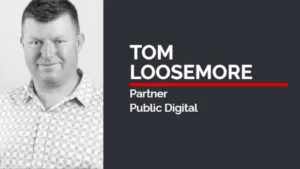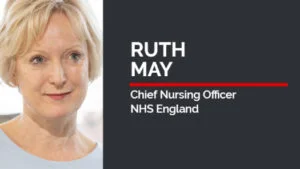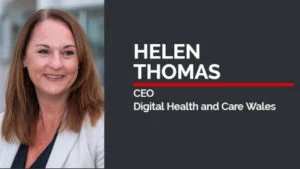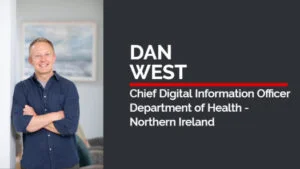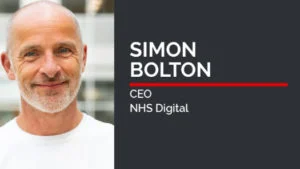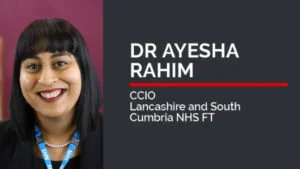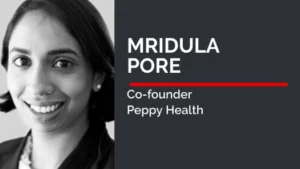Markus Bolton reflects on 40 years of health tech and why 2022 is such a pivotal time for the industry.
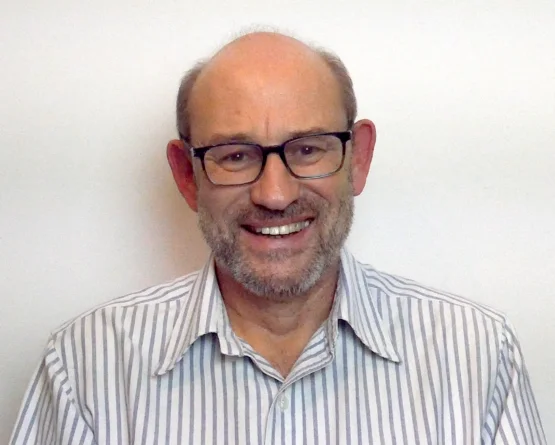
- Co-headline sponsor of Digital Health Rewired 2022, System C Healthcare is preparing for its 40th anniversary next year. Joint-CEO, Markus Bolton reflects on the successes and challenges of the past four decades and takes a glance at what the future could hold for the health and social care sector. Markus will be presenting on the Integrated Care Stage at Rewired on 15 March. System C can be found at Stand B6.
Have the challenges facing healthcare providers shifted over the past 40 years? What is the most important focus right now?
It’s funny – having rung in a few decades during my time with System C, I have seen the same conversations pop up time and time again. I’m moving house at the moment, and I’ve unearthed a lot of historical documentation, including a report from the 1998 Information Management Group (which became the NHS Information Centre, a predecessor to NHS Digital). If you look through that paperwork, it says that all Trusts must have an EPR, and it talks about improving flow and reducing length of stay, empowering patients, having more access to patients for data, and improving outcomes and safety. These are the same things that people have been talking about for the last 20-30 years and making varying amounts of progress on. But if you are working at a board level, then they are ever present. They’re omnipresent as things that you simply have to get on with and do.
Having said that, while some themes remain constant, from time-to-time specific requirements and changes do come along. We can’t ignore the pandemic, which has been an unprecedented challenge for the NHS and other care providers over the past two years. There is no doubt that it has resulted in even more pressure in terms of waiting lists, bed availability, and the workloads of our health and social care providers.
Covid-19 has accelerated digital transformation and shone a light on inequalities across the system, which is having a positive impact. One development that we’ve noticed as a Care Alliance (a group of companies that now includes remote monitoring specialists, Docobo) is the massive push to bolster remote monitoring and virtual beds. All of a sudden, it’s the big thing and we’re being inundated by people that are after those solutions. NHS England has asked for the equivalent of 5,000 additional hospital beds in its 2022/23 priorities and operational planning guidance. Graphnet/Docobo are targeting over 250,000 remotely monitored patients next year to help our customers meet this demand.
The Integrated Care System (ICS) model is obviously a new and significant development. What are your thoughts on ICSs and the benefits to health and social care?
It is still early days, but I believe that the ICS model will give us the opportunity to provide the British public with exactly what it says on the tin. Integrated care – health and social care systems working together to deliver joined up services for everyone that needs them. Technology and IT solutions that are interoperable, flexible, and user-friendly for all, will be key to achieving that, and enabling us to meet the goals of regionalising care, tackling health inequalities, virtualising care delivery, and delivering value-based healthcare
Cross ICS workflow and data sharing, particularly with social care is going to be crucial over the coming years. ICSs will really need to work with suppliers that have knowledge of social care as well as health and running hospital EPRs, shared care records, population health platforms, care coordination platforms, medicines management platforms and councils puts us in a unique position. We are currently working with several ICSs to integrate health and social care, provide a single medicines record, deploy whole ICS care coordination platforms, and link acute Trusts.
How do you feel about Sajid Javid’s recent announcement, which states that all Trusts should have an EPR by December 2023? Do you think it’s achievable?
It should be achievable for most Trusts, if they get onto it now, but the focus needs to be on getting the right system in place – not rushing to meet a deadline. We also need to think beyond what an EPR has to deliver now and look to the future. What will an ICS need to support the delivery of the digital transformation that is going to be required? People often get caught up in the detail, but when you boil it down, an EPR needs to provide the following, both to address existing challenges, as well as further down the track:
- Paperless: real time data capture through routine care.
- Population health: data driven, predictive and preventive care for all.
- Care coordination: Team and event driven care co-ordination, speeding up care and decision making.
- Virtual hospital care: Increasing capacity and patient choice through virtual care.
- Holistic information: Making informed clinical and operational decisions, based on all the information.
- Clinical decision support: Improving safety by helping clinical decision making.
- Social care and ICS integration: Improving discharge and preventing unnecessary admissions.
- It’s great to see that a number of Trusts and ICSs are already well on the way with putting this kind of system in place. Their efforts are paying dividends with benefits such as reduced length of stay, reduced mortality rates, more patient facing interactions, early detection of deterioration, and improved patient safety being reported.
- What are your hopes for the future – is British health and care heading in a positive direction?
There are lots of things left to achieve, and so many plans in the pipeline. However, at the heart of it all, I think we all need to continue learning, innovating, as we work together to achieve the future for health and social care that we’re striving towards. A world where patients receive care that is perfectly tailored to them and their specific needs. A fully integrated care system with people at the centre, in control of their own healthcare, with the power and knowledge to make key decisions themselves.
In the near future, I hope that information will be easily shared between caregivers and clinicians, and individuals will have the tools to keep themselves well and monitor their progress, sharing any sign of deterioration or concern with their circle of care to ensure immediate preventative action. An increasingly rich pool of data from across the country will allow us to track trends and target inequalities with more and more accuracy.
There is still a way to go but if we work together as a team, we will get there. It’s an exciting journey, and one that I am immensely proud to be part of.
Other confirmed Rewired 2022 speakers include:
